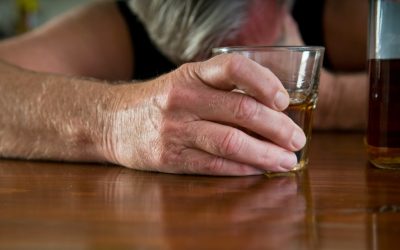It can be a problem for people who have to stay in bed a lot or just can’t move much because of a health problem. Sometimes constipation can be a sign of a more serious health problem, such as colorectal cancer. Also, not dealing with constipation early can lead to hemorrhoids, fissures or cuts in your bottom, and other complications. Your colon is partly managed by your nervous system, which is like your body’s electrical wiring. But over time, laxatives can damage the nerve cells in your colon and interfere with muscle contractions needed to empty stools. Laxatives can become a habit, meaning you’ll need to use them before you can poop.
Which drinks and juices are best for constipation?
One of the most effective ways to limit the effects of alcohol is to drink in moderation. Most people should be able to avoid alcohol affecting https://minnesotadigest.com/top-5-advantages-of-staying-in-a-sober-living-house/ their bowel movements if they limit their intake. As the digestive system is working faster than normal, it can make the need to poop urgent.

How does alcohol affect your poop?
- Treatment for most cases of alcohol-induced pancreatitis includes a combination of measures, such as IV fluids and electrolyte replacement, tube feeding and alcohol cessation counseling.
- Moreover, exercise can help promote healthy muscle tone, which can also help with healthy digestion.
- Some types of fiber can act as prebiotics, which stimulate the growth of gut bacteria related to health benefits for the host [52] and positively shorten colonic transit time [53].
- When you consume a lot of alcohol, your intestines release more water, which leads to issues like diarrhea.
- When you drink alcohol, it’s more difficult for your body to release vasopressin, which is a type of hormone that makes it possible for your body to keep water from exiting when you urinate.
- Here are some tips to help you get ahead of and recover from alcohol-related changes to your bowel movements.
While your tummy might feel uncomfortable, your constipation isn’t likely to subside if you simply sit on the sofa. Just like alcohol, caffeine (especially a lot of it) is dehydrating, which can prevent your plumbing from functioning smoothly. By Lindsay CurtisCurtis is a writer with over 20 years of experience focused on mental health, sexual health, cancer care, and spinal health.
Leads to dehydration
Stool that remains in the digestive tract will harden over time, making it difficult and sometimes painful to pass. “That’s because if you drink alcohol in large amounts, it can increase the amount of fluids lost through your urine, causing dehydration,” Dr. Sonpal says. “And poor hydration, either due to not drinking enough water or losing too much of it through urine, is often linked to an increased risk of constipation.”
Think you have a drinking problem?
Before you experience withdrawal, you may be diagnosed with AUD. There are many techniques doctors use to determine if someone has AUD or is simply drinking a little too much alcohol. For example, doctors often start examinations by asking questions pertaining to the client’s drinking habits. They might also ask their clients if they can speak with any friends or family members. Drinking too much alcohol disrupts the production of mucus that lines the stomach, which can cause the stomach lining to become inflamed. Symptoms of gastritis include abdominal pain, nausea and vomiting.

With the exception of cigarettes and symptoms of constipation, our data suggest that caffeine and cigarettes play at most a modest role in GI symptoms among women with IBS. What your child eats and drinks has a big impact on how healthy their poops are. For instance, it’s important to increase their intake of foods with insoluble fiber and skip foods that are low in fiber and highly processed, like fast food. Other changes to their diet, such as upping their water intake or incorporating more fruits and veggies into their diet, can help too.
When you use them for a long time, it can actually make constipation worse. Bivariate correlation analyses were carried out based on Pearson correlations, employing either log-transformed (originally non-normally distributed) or original (normally distributed) data. In the following, partial correlation analyses were carried out controlling for major confounding factors. Bivariate correlation analyses were also carried out, stratified for sex, age, and BMI.

Within a year of heavy alcohol use, the amount of digestive “discomfort and pain” she felt forced her to “seriously think about” her drinking habits and make a change, Noel says. I’ve spent the last seven years researching and understanding alcoholism, addiction, and how people get sober. Additionally, I examine the way mental and physical health as well as our relationships with others impact the reasons people drink and their role in maintaining sobriety long-term.
An alcohol use disorder (AUD) can develop among people who drink frequently. When someone develops this condition, they’re oftentimes unable to stop drinking. Even if drinking alcohol begins to negatively impact the person’s everyday life, it’s unlikely that they’ll quit. Heavy alcohol intake may exacerbate gastrointestinal (GI) symptoms in adults with irritable bowel syndrome Top 5 Advantages of Staying in a Sober Living House (IBS); however, the role of alcohol in IBS is unclear. The best way to spare yourself from digestive distress (and a hangover) is to drink in moderation. Binge drinking is classified as having more than four drinks during an occasion for women and five drinks for men, so it’s important to stay below this threshold to help your body process alcohol in a healthier way.
